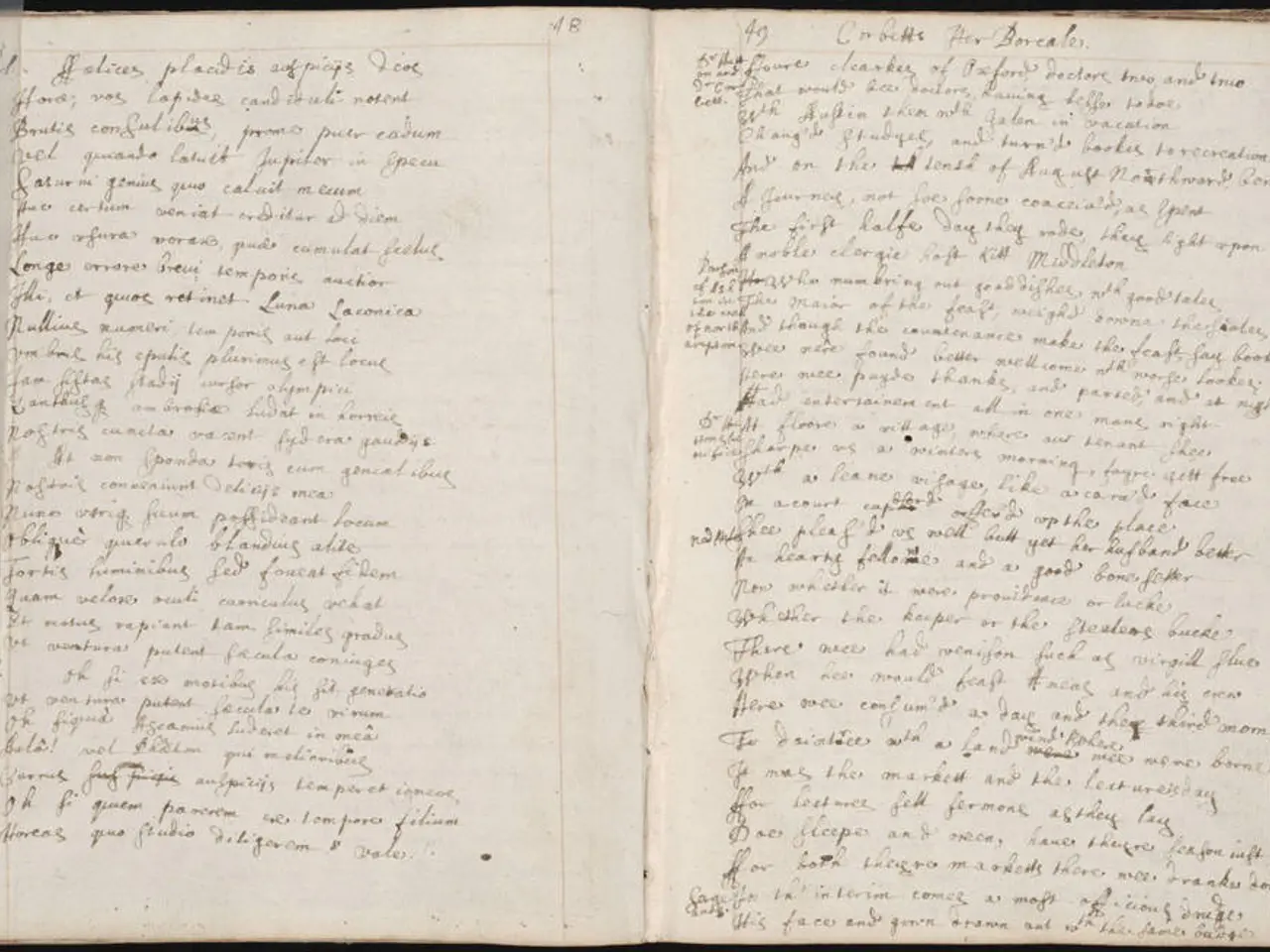Appreciate the Compelling Reasons to Engage in Brief Narratives: Flash Fiction
In the world of literature, flash fiction stands out as a unique and captivating form, characterized by extreme brevity and the ability to deliver powerful narratives in a small word count. Its history and evolution can be traced back to various experimental short storytelling traditions, but it has only been recognized as a distinct genre in more recent times.
### Origins of Flash Fiction While very short stories have existed throughout literary history, flash fiction as a named form emerged in the 20th century as writers experimented with concise storytelling formats. It draws lineage from ancient parables, fables, and aphorisms, but its modern conception aligns with the rise of magazines and journals that published short and ultra-short narratives. Flash fiction is rooted in the impulse to deliver compelling, complete stories in minimal words, allowing for sharp, impactful narratives.
### Evolution Through the 20th Century Throughout the 20th century, literary magazines began embracing very short stories for their ability to deliver emotional or thematic impact swiftly. This was partly driven by the increasing pace of modern life and the demand for quick, powerful storytelling bites. Writers like Lydia Davis and others helped shape the form by pushing the boundaries of brevity and narrative depth.
### Rise in Popularity Through the Internet The internet era has been pivotal in the rise of flash fiction, making it widely accessible and popular globally. Online literary journals, social media, and digital platforms have created perfect venues for sharing very short stories, which suit online consumption habits. Sites like Bright Flash Literary Review provide dedicated outlets for flash fiction with specific submission guidelines catering to stories of 50 to 1500 words. Social events such as the UK National Flash Fiction Day celebrate the form and its community.
The internet’s immediacy and the widespread use of smartphones have increased demand for short-form content, making flash fiction ideal for readers seeking quick but meaningful literary experiences. This accessibility has led to a flourishing of the form, encouraging writers to experiment with flash story forms and themes.
### Summary - Flash fiction’s roots lie in ancient short forms like parables but it emerged as a recognized genre mainly in the 20th century. - It evolved from literary experimentation with concise storytelling, embraced by magazines and writers exploring brevity. - The internet era accelerated its popularity, providing platforms for sharing ultra-short stories and fostering a vibrant global community. - Contemporary outlets and events promote flash fiction, establishing it as a significant and dynamic literary genre today.
This trajectory from ancient short tales to a thriving internet-native form underscores flash fiction’s adaptability and enduring appeal in storytelling. Its popularity is expected to continue growing due to shrinking word counts and decreasing attention spans. High-profile authors like Kurt Vonnegut, Ray Bradbury, Joyce Carol Oats, Ernest Hemingway, and H.P. Lovecraft have written flash fiction, making it an attractive and challenging way for writers to test their skills. Flash fiction is short enough to be read in an instant, with opinions on its length ranging from 300 words to 1,000 words.
The author of the article, Kyle Massa, writes speculative fiction, blogs, non-fiction, and tributes to coffee. Concision is becoming increasingly essential in writing, including flash fiction, as readers become less forgiving of poor writing due to its brevity and poor writing stands out more in flash fiction compared to long-form narratives. The limited space in flash fiction necessitates razor-sharp language, making it a demanding yet rewarding form for both writers and readers.
In the realm of literature, the popularity of flash fiction has expanded beyond its traditional roots, reaching home-and-garden magazines that now publish flash fiction as a distinct feature. The allure of flash fiction's ability to deliver powerful narratives in a compact lifestyle resonates with busy readers seeking bite-sized literary experiences.
With the rise of digital platforms and online journals dedicated to flash fiction, this short-form genre has found new ground among a diverse audience, bridging the gap between traditional and contemporary storytelling.




